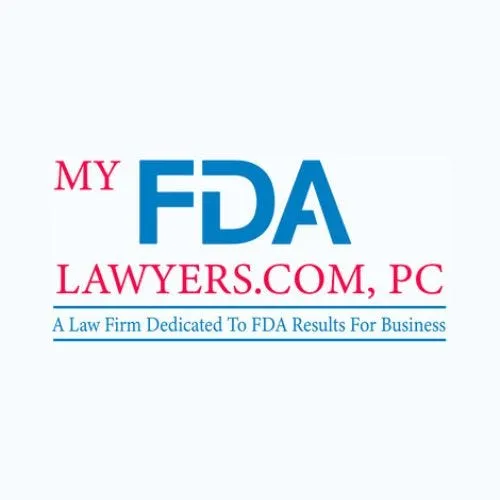Device Classification Expertise at Your Service: Navigating FDA Consulting Services and FT
In the intricate landscape of FDA regulations, businesses dealing with food, drugs, and medical devices face a myriad of challenges. From ensuring compliance with FDA's Food Safety Modernization Act (FSMA) to navigating device classification and registration for pet food, companies often find themselves in need of expert guidance. In this article, we'll delve into the significance of FDA consulting services, the intricacies of device classification, and the role of FTC Representation, all vital components for businesses striving to meet regulatory standards and excel in their respective industries.
Understanding FDA Consulting Services
FDA consulting services play a crucial role in helping businesses comply with complex regulations set forth by the Food and Drug Administration. These services encompass a wide range of areas, including compliance with FDA regulations, product development, quality systems, and more. For businesses operating in sectors such as food, drugs, and medical devices, partnering with experienced consultants can provide invaluable assistance in navigating regulatory requirements and achieving market success.
One such area where fda consulting services are particularly beneficial is in compliance with the Food Safety Modernization Act (FSMA). Enacted in 2011, FSMA aims to shift the focus from responding to foodborne illness outbreaks to preventing them. Compliance with FSMA regulations requires thorough understanding and implementation of preventive controls, risk analysis, and supply chain management, all of which can be facilitated by fda fsvp consulting experts.
Navigating Device Classification
Device classification is a critical aspect for companies involved in the production and distribution of medical devices. The FDA classifies medical devices into three categories—Class I, Class II, and Class III—based on the level of risk they pose to the public and the regulatory controls necessary to ensure their safety and effectiveness.
- Class I Devices: These are considered low-risk devices and are subject to the least regulatory controls. Examples include elastic bandages, examination gloves, and hand-held surgical instruments.
- Class II Devices: These devices pose moderate risk and are subject to special controls to provide reasonable assurance of safety and effectiveness. Examples include powered wheelchairs, infusion pumps, and surgical drapes.
- Class III Devices: These devices pose the highest risk and are subject to the most stringent regulatory requirements, including premarket approval. Examples include implantable pacemakers, heart valves, and deep brain stimulators.
Navigating the classification process requires in-depth knowledge of FDA regulations and guidance documents. FDA consulting services specializing in medical devices can assist companies in determining the appropriate classification for their products, preparing regulatory submissions, and ensuring compliance with applicable requirements.
Pet Food Registration: Ensuring Safety and Compliance
Pet food registration is another area where FDA consulting services can provide valuable support. The FDA regulates the manufacture and distribution of pet food to ensure its safety and proper labeling. Under the Federal Food, Drug, and Cosmetic Act, manufacturers are required to register their facilities with the FDA and provide accurate product information.
Additionally, with the increasing consumer demand for transparency and quality in pet food products, compliance with FDA regulations is essential for maintaining trust and confidence in the industry. FDA consulting experts can help pet food manufacturers navigate the registration process, develop compliant labeling, and implement quality control measures to ensure the safety of their products.
The Role of FTC Representation
While FDA regulations primarily focus on product safety and effectiveness, businesses must also navigate regulations enforced by the Federal Trade Commission (FTC), especially regarding advertising and marketing practices. FTC representation is crucial for companies to ensure compliance with laws governing deceptive or unfair trade practices.
FTC regulations prohibit false or misleading advertising, deceptive pricing, and other unfair business practices that may mislead consumers. Failure to comply with FTC regulations can result in significant fines and damage to a company's reputation. Therefore, businesses must have proper representation to navigate FTC investigations, respond to inquiries, and develop advertising and marketing strategies that meet regulatory standards.
Why Expert Representation Matters
In the highly regulated industries of food, drugs, and medical devices, the consequences of non-compliance can be severe, ranging from product recalls to legal penalties and damage to brand reputation. Expert representation from FDA consulting firms can help businesses mitigate these risks by providing:
Specialized Knowledge: Consultants specializing in FDA regulations and compliance possess the expertise needed to interpret complex requirements and navigate regulatory processes effectively.
Tailored Solutions: Every business is unique, and FDA consulting services offer tailored solutions to address specific challenges and objectives, whether it's obtaining Device Classification, registering pet food products, or ensuring compliance with advertising regulations.
Risk Mitigation: By proactively addressing regulatory compliance, businesses can minimize the risk of non-compliance issues such as recalls, warning letters, and enforcement actions, thus safeguarding their reputation and bottom line.
Market Advantage: Compliance with FDA and FTC regulations is not just about meeting legal requirements; it's also about gaining a competitive edge in the market. Companies that demonstrate a commitment to quality, safety, and compliance are more likely to win consumer trust and loyalty.
Conclusion
In the complex regulatory landscape of food, drugs, and medical devices, expert representation is essential for businesses to navigate the maze of FDA and FTC regulations successfully. FDA consulting services provide invaluable support in ensuring compliance, achieving market success, and protecting consumers' health and safety. From device classification to pet food registration and FTC representation, partnering with experienced consultants can make all the difference in a company's journey toward regulatory compliance and market excellence.
